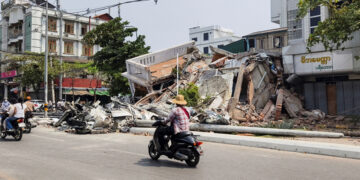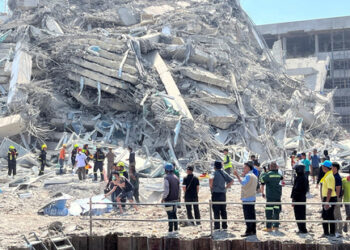Introduction:
Israel has announced the reclamation of control over the Gaza border as it deploys the most intense airstrikes in its 75-year history of conflict with the Palestinians. This comes terrorist group Hamas, the Palestinian Islamist group, has issued a threat to execute captives for every home struck by Israeli forces. Israel’s resolve to exact “mighty revenge” follows a devastating attack by gunmen in its towns, resulting in the deadliest assault in its history.
Israel’s Retaliation:
Israel has initiated a fierce retaliation, including extensive airstrikes, in response to the Hamas attacks. Israeli media reports have indicated that the death toll from these attacks has surged to 900, with the majority of casualties being civilians. This attack surpasses the scale of any previous assault by Islamist groups, excluding the events of 9/11.
Humanitarian Crisis in Gaza:
The United Nations reports that 180,000 Gazans have been left homeless, with many seeking shelter on streets or in schools. Israeli bombardments have made it challenging for emergency crews to reach the scenes of strikes. The morgue in Gaza’s Khan Younis hospital is overwhelmed, with bodies placed on the ground on stretchers, reflecting the severity of the situation.
Journalists Killed in the Conflict:
In a tragic development, three Gaza journalists were killed by an Israeli missile strike while they were reporting outside. This brings the total number of journalists killed in Gaza since Saturday to six.
Israeli Defense Strategy:
The Israeli military spokesperson, Rear Admiral Daniel Hagari, has asserted that Hamas operatives have “nowhere to hide in Gaza,” emphasizing Israel’s determination to neutralize threats.
The Uncertain Future:
As the conflict escalates, Israel is considering the possibility of a ground offensive into the Gaza Strip, a territory it evacuated in 2005 but has blockaded since Hamas assumed power in 2007. The total siege imposed on Gaza would prevent even food and fuel from reaching the region.
Hamas’ Threat and Diplomatic Implications:
Hamas spokesperson Abu Ubaida issued a threat on Monday, vowing to execute one Israeli captive for every Israeli airstrike on a civilian residence without prior warning, with the intent to broadcast these killings. The severity of the attacks and Israel’s retaliation have disrupted diplomatic efforts in the Middle East, particularly as Israel was on the brink of normalizing relations with Saudi Arabia.
International Responses:
Western nations have expressed strong support for Israel, while Arab cities have witnessed street demonstrations in solidarity with the Palestinians. Iran, Hamas’s patron, has celebrated the attacks but denied direct involvement.
Iran’s Response and Regional Tensions:
Iran’s Supreme Leader, Ali Khamenei, asserted that Iran did not orchestrate the attacks but commended the planners. This has raised concerns about regional tensions and the potential involvement of Iran’s ally, Lebanon’s Hezbollah, in the conflict.
U.S. Warning to Iran:
General Charles Q. Brown, Chairman of the Joint Chiefs of Staff, issued a warning to Iran, emphasizing the desire to prevent the escalation of the conflict: “We do not want this to broaden, and the idea is for Iran to get that message loud and clear.”








 India
India












